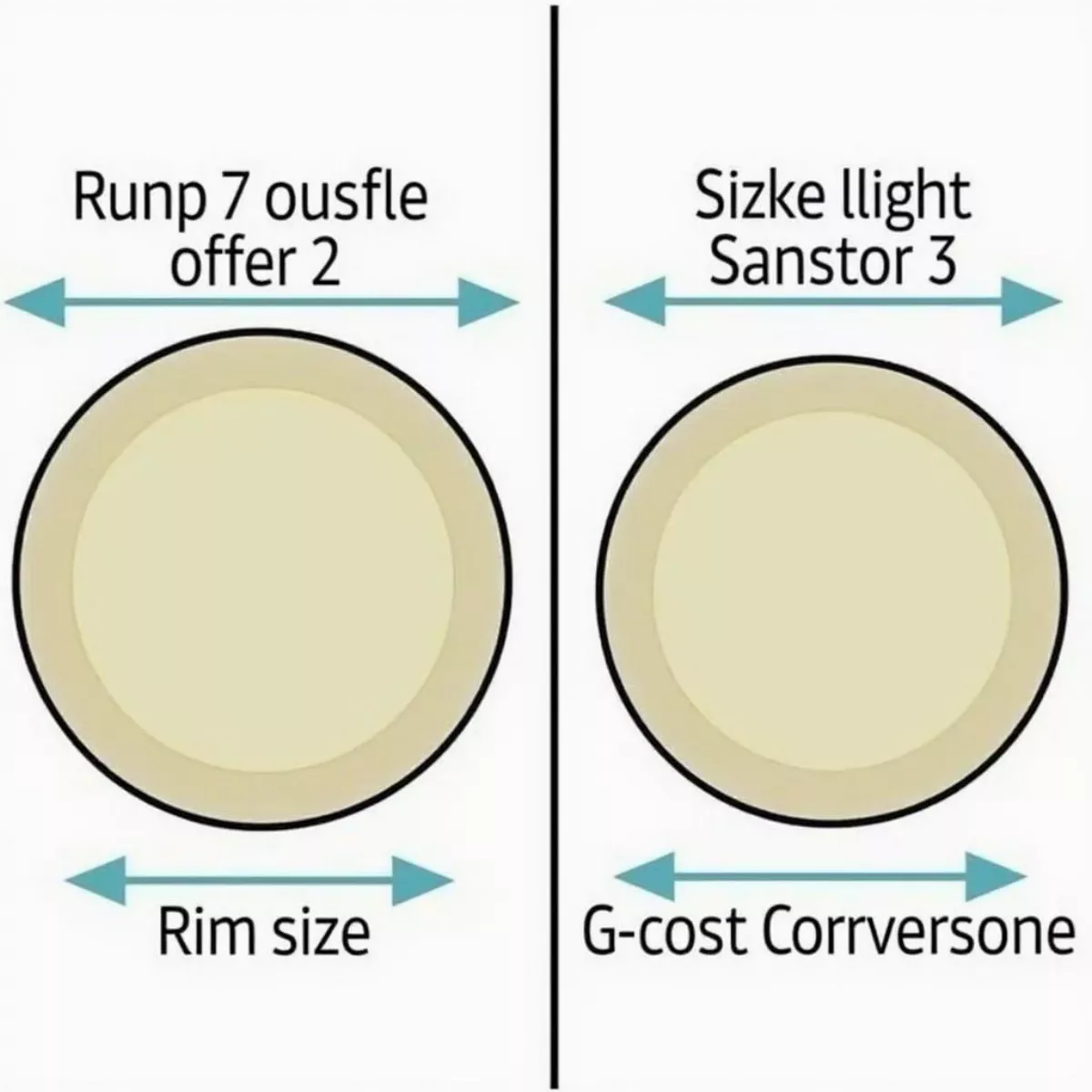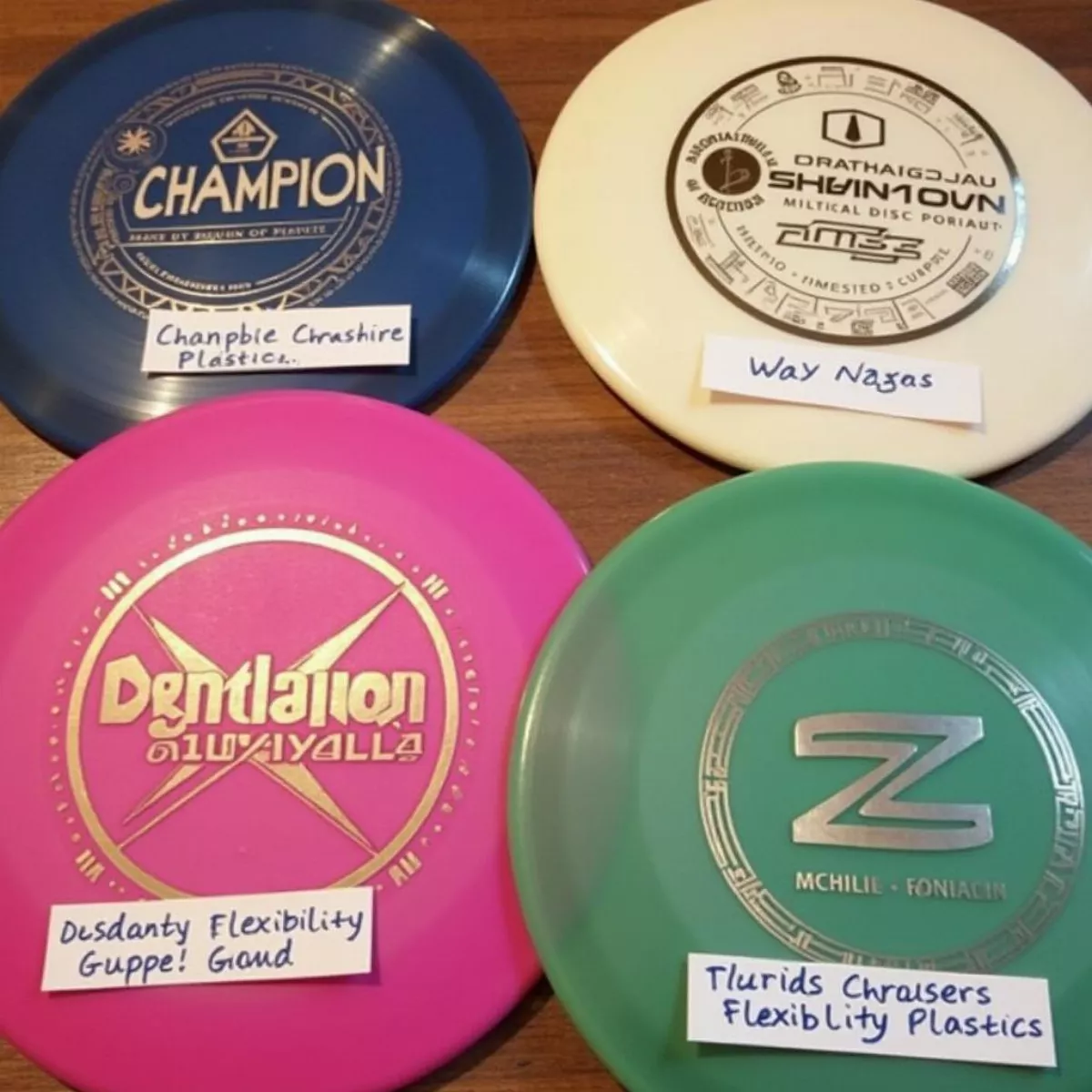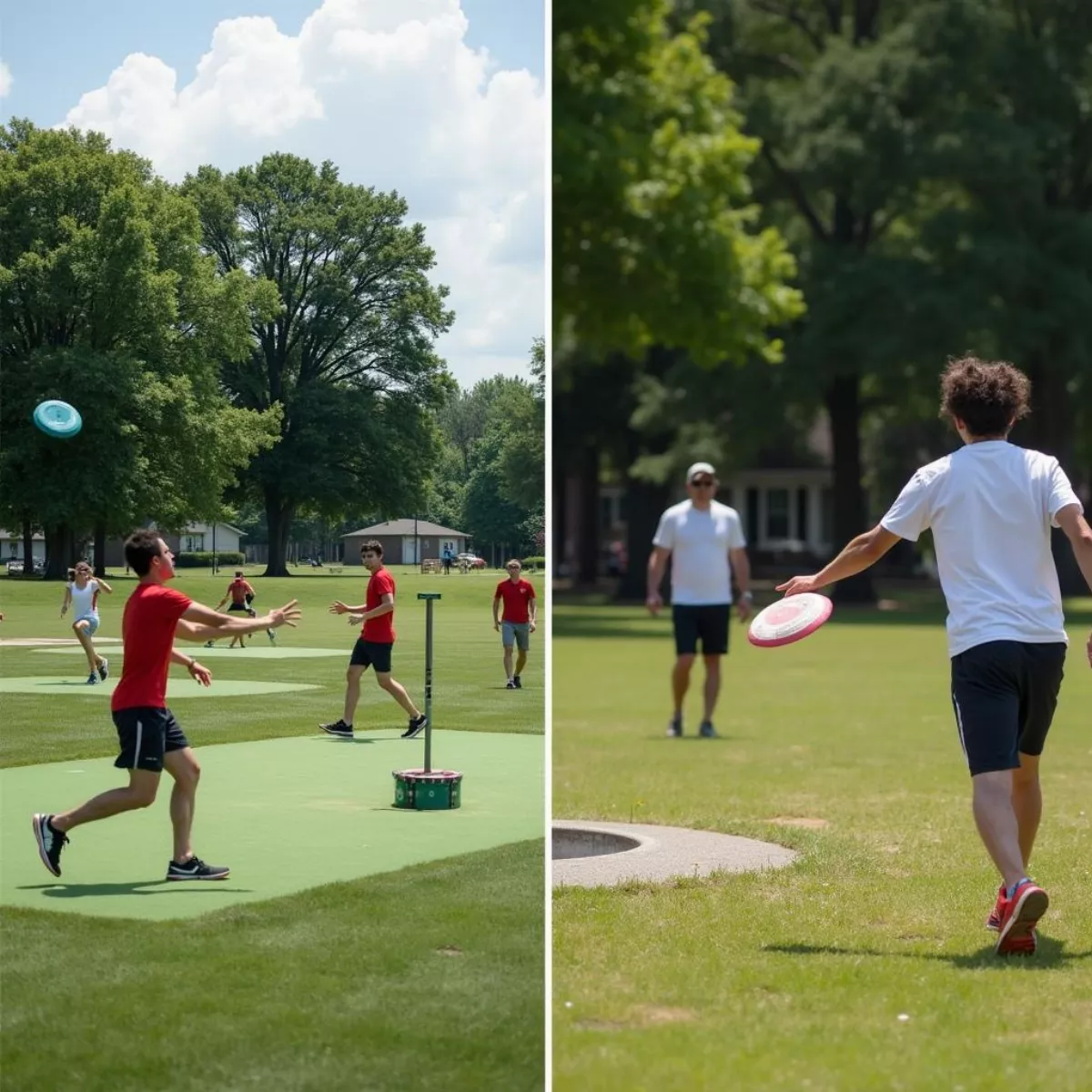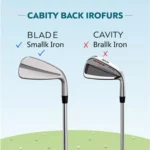If you’ve been wandering through the world of flying discs, you might be wondering: What’s the difference between disc golf discs and frisbees? Whether you’re a seasoned disc golfer or someone who just enjoys tossing a frisbee at the park, understanding these differences is essential. Not only can it enhance your enjoyment, but it can also improve your performance. So, let’s dive in!
A Brief Overview of Disc Golf and Frisbee
Disc golf is a rapidly growing sport that combines elements of golf and frisbee; players throw a disc from a tee area toward a target, which is usually a metal basket. Meanwhile, frisbee, or flying disc, is a casual recreational activity enjoyed by all ages, often played in parks and open fields.
While both involve throwing a disc, the design and purpose of disc golf discs and frisbees are markedly different. But fear not, dear reader! We’re here to clarify these distinctions and help you choose the right flying disc for your next outing!
Key Differences Between Disc Golf Discs and Frisbees
When you think about disc golf discs vs. frisbees, consider these key aspects:
| Feature | Disc Golf Discs | Frisbees |
|---|---|---|
| Design | Heavier, smaller diameter | Lighter, wider diameter |
| Weight | Typically 150-180 grams | Usually 70-175 grams |
| Flight Characteristics | Designed for stability and control | Prone to glide and float |
| Materials | High-tech plastics with varying stiffness | Soft plastic materials |
| Purpose | Targeted throws for distance & accuracy | Casual throwing/playing |
| Grip | More textured, with rim for grip | Smooth surface for easier catching |
1. Design: What Sets Them Apart
The fundamental design differences between disc golf discs and frisbees stem from their intended uses:
- Disc Golf Discs: Designed for optimal aerodynamics and control, these discs feature a flatter profile and a wider rim, which helps them cut through the air efficiently. The weight of a disc golf disc typically ranges between 150-180 grams, allowing for better distance and targeted throws.
- Frisbees: In contrast, frisbees often have a more rounded, shallow design that encourages a floating flight, which is ideal for recreational play. Their commonly lighter weight (70-175 grams) allows for easy tossing and catching.
 Disc golf disc and frisbee design comparison
Disc golf disc and frisbee design comparison
2. Flight Characteristics: Glide vs. Stability
When throwing a disc, understanding its flight characteristics is crucial:
- Disc Golf Discs: These discs offer stability and control. Their design allows for different flight paths, making them versatile for various shots, such as backhands, forehands, and putting. The stability ratings (understood through numbers that often range between -5 to +1) indicate how the disc will behave in the air. A stable disc will fly straight, while an overstable disc will tend to fade left (for right-handed backhand throws).
- Frisbees: Frisbees typically glide longer but lack control in terms of distance or trajectory. They’re ideal for casual tosses, lawn games, or playing with dogs, resulting in a less inconsistent flight pattern.
3. Materials Used: Durability and Feel
Both disc golf discs and frisbees are made from durable materials, but there are significant differences:
- Disc Golf Discs: Constructed from high-quality plastics designed to endure wear and tear, these discs often come in multiple grades ranging from softer and more flexible options to firmer choices. Materials like Champion, Star, or Z Plastic are popular in the disc golf community.
- Frisbees: Made from softer plastic, frisbees can sometimes be more prone to bending and scratches, which makes them suitable for casual use but less dependable for serious players.
 Various disc golf disc plastics and their properties
Various disc golf disc plastics and their properties
4. Grip: Essential for Performance
The grip of a disc is essential for ensuring you can throw accurately:
- Disc Golf Discs: The textured rims and surfaces of disc golf discs offer a better gripping experience, allowing players to throw with intention and style. Some brands even produce discs with varying levels of grip to accommodate different player preferences.
- Frisbees: While frisbees are often smooth, they may not provide the same traction for precise throws. They are better suited for fluid motions and less intense applications.
Why You Should Choose Accordingly
When assessing your needs, consider these factors:
- If you enjoy competitive play, targeting accuracy, and improving your throwing techniques, then investing in disc golf discs is worth your while.
- If your goal is simply to enjoy spending time outdoors with friends or family, a frisbee will suffice.
Key Takeaways
- Disc golf discs and frisbees serve different purposes. Choose the right one based on your activity type.
- Design features differentiate disc golf discs from frisbees in terms of flight characteristics, weight, and materials.
- Understanding the grip and durability of each can improve your throwing experience.
- Always consider stability characteristics and weight to optimize your performance.
 Contrasting disc golf and frisbee settings
Contrasting disc golf and frisbee settings
FAQ Section
Here are some frequently asked questions about disc golf discs vs. frisbees:
1. Can I use a frisbee for disc golf?
Yes, you can use a frisbee for casual play, but for optimal performance, it’s best to use specialized disc golf discs.
2. What is the best weight for disc golf discs?
Most players prefer discs weighing between 165-175 grams for their balance of control and distance.
3. Are all frisbees the same?
No, frisbees vary in design, weight, and material, which can affect their performance.
4. How many types of disc golf discs are there?
There are generally three types: drivers, midrange discs, and putters—each designed for different aspects of throwing.
5. Can I throw disc golf discs for fun?
Absolutely! Many disc golfers enjoy using their discs for casual games as well.
6. Is there a significant price difference between disc golf discs and frisbees?
Disc golf discs typically range from $10 to $30, while frisbees are often less expensive, averaging $5 to $20.
7. How should I clean my discs?
Use warm, soapy water and a soft cloth to clean your discs. Avoid abrasive materials that may scratch the surface.
8. Do practice discs exist?
Yes, many manufacturers produce practice discs designed for durability and lower costs.
Conclusion
Choosing between disc golf discs and frisbees comes down to personal preference and activity style. Understanding the nuances of each can not only elevate your gameplay but also extend your enjoyment of throwing discs, whether you’re hitting the course or just hanging out at a park.
So grab that disc or frisbee, and get ready to enjoy another beautiful day under the sun!
Now, go out and have fun with your flying discs – your next adventure awaits!

